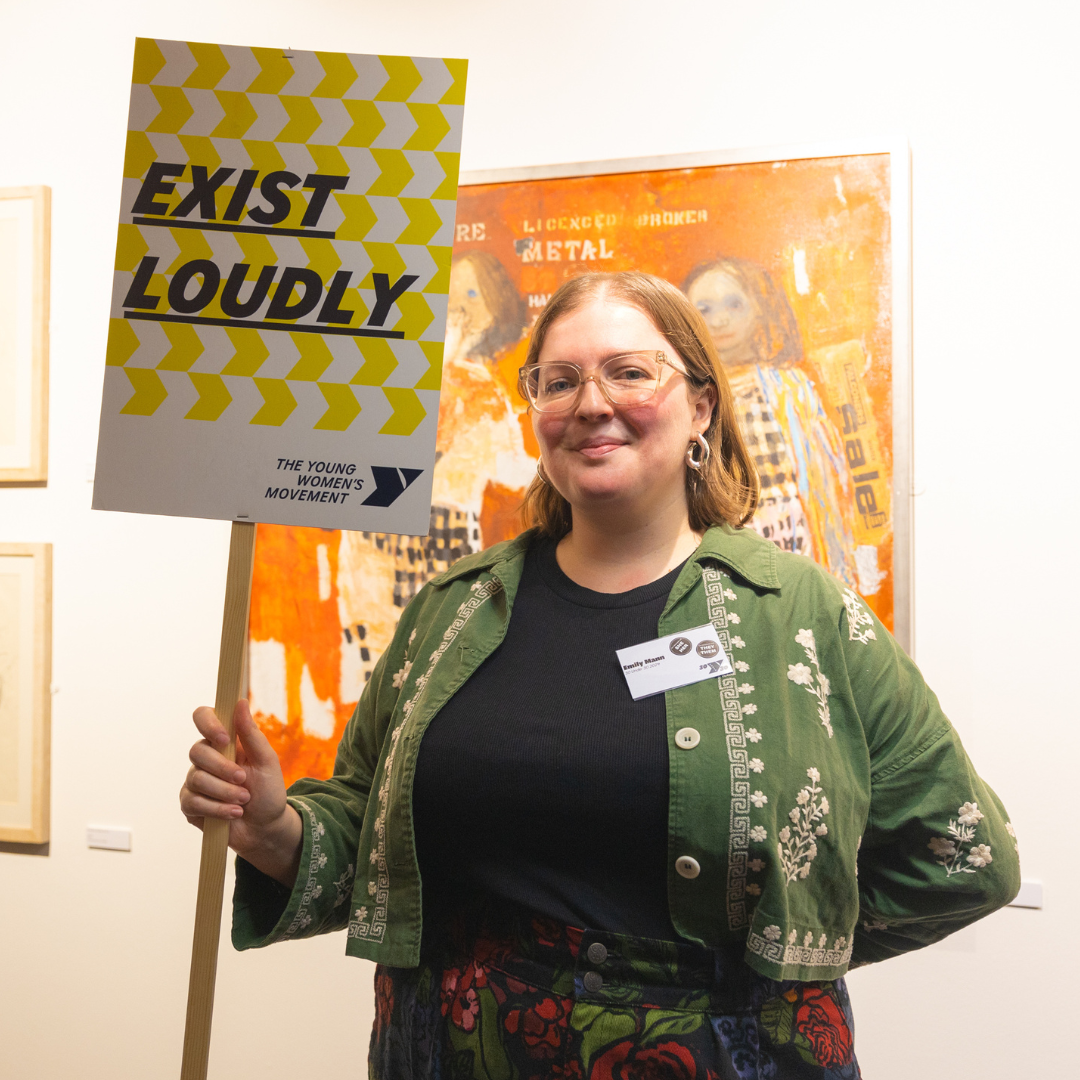Chloe, one of this year’s 30 Under 30, discusses how she organised in Orkney to support women experiencing sexual violence. She offers advice for how others can tackle sexual violence in rural areas.
- 30 Under 30
- Violence prevention
- Article
Estimated reading time: 5 minutes
I only recently learnt that I am autistic. And even though I experience Alexithymia (sometimes I struggle to identify, recognise and then communicate my emotions), my feelings about late discovery are contradictory, conflicting and colossal. I now volunteer with SWAN Autism (Scotland); the charity that supported me in navigating my own autism discovery.
Autistic women and non-binary people are far more likely to be overlooked or misdiagnosed than their male counterparts. There is a lack of agreement as to why: medical misogyny, gender bias, coexisting conditions – or we’re supposedly better at masking (we strategically adapt to fit in better). But this last reason in particular puts the onus on autistic people – rather than societal expectations that are gendered. The National Autistic Society’s “Now I Know” campaign shares how other autistic women and non-binary people feel about their late diagnosis.
Knowing what I do now, I did not mask particularly well. Yet nobody thought to ask the question – despite the men in my family receiving a diagnosis very young. Asking my GP and university for help was unsuccessful. So, I reached out to my favourite clown: the hilarious comedian and author Fern Brady. She too had expressed having no idea what to do or who to ask and has shared sacred knowledge about (what can be) an arduous journey to get external confirmation.
Waiting times all over Scotland are absurd. Where I live in Aberdeen and Aberdeenshire, there’s a two-year wait for a pre-assessment and then an additional two-year minimum wait after that for assessment. The demand far exceeds the support available; departments are under-resourced and overworked due to the lack of funding for the NHS. Paying privately is expensive and inaccessible. The assessment process itself can be (re)traumatising. These barriers aside, it’s really important to emphasise that self-diagnosis is valid and needs to be recognised as such.



Emily at the 30 Under 30 2024 celebration event
Some people and places are neuro-diversity affirming. This requires critical thinking about wider systemic injustices and how we know what we know. As well as rejecting the medical model of disability and outdated neuro-normative assumptions like autism as a disorder; neurodiversity is instead celebrated and autistic people are understood as experts by experience. This shifts the emphasis onto wider society as disabling and dismissing neurodivergent people, rather than there being something inherently wrong with us.
I really value the inclusive ethos of places like The Adult Autism Practice. In reframing the identification process as collaborative, they challenge the power dynamics of traditional assessments. This feels more empowering. It’s also vital that services are also LGBTQIA+ affirming, offer remote options and payment plans for those on low-income.
Fern Brady describes the lack of support she received following her late autistic diagnosis as “given a reading list and told good luck at parties”. After my diagnosis, I felt relief, reassurance and validation. But I also felt lost. The post-diagnosis-to-identity-crisis pipeline is characterised by isolation, a sense of helplessness and confusion, because answering the overarching question ‘Am I autistic?’, inevitably asks way more questions.
What do you do when you’re late to the party, your own party, and you’ve no idea what to do? Other than books, podcasts and Instagram infographics – I couldn’t find any meaningful resources or opportunities to connect with other autistic people. In the wee hours I desperately googled autistic women Scotland. This is where I first came across SWAN Autism (Scotland). I immediately signed up for their webinars, meet ups and post-diagnosis group. They also host an online peer support forum, pre-diagnosis group and autistic-led training.
Connecting with SWAN and experiencing a neuro-inclusive environment has been life-changing. Becky Choat’s (SWAN Project Lead) approach to facilitating autistic exploration is the most understood I have ever felt. Every interaction with SWAN’s volunteer coordinator Mandy Williams, is uplifting, encouraging and has altered my self belief for the better.
In a beautifully cyclical turn of events, I now support the very post-diagnosis group I once attended and help others who are navigating their own complex journeys. SWAN has encouraged me to think differently about being autistic. To consider my austic strengths (rather than fixating only on the things I struggle with), my sensory seeking (not just sensory issues), what brings me autistic joy and most importantly to celebrate myself.
Late discovery and the lack of meaningful support for autistic women and non-binary people is a feminist issue. We urgently need more neuro-diversity affirming spaces and to improve everyone’s intersectional understanding of autism. You can support the incredible work SWAN Scotland does by donating or attending their training to develop autism-inclusive practices.
Emily Mann is featured on 30 Under 30 2024. Read more about Emily on their profile.
Chloe, one of this year’s 30 Under 30, discusses how she organised in Orkney to support women experiencing sexual violence. She offers advice for how others can tackle sexual violence in rural areas.
Tasnim Hassan, a Disabled researcher-activist, talks about the important connection between disability justice and feminist movements.
Maya McCrae talks about how young women are more likely to be impacted by imposter syndrome, and her experience of this in the workplace.
Emma Roberts talks about the importance of mentorship, training, and employee networks for young women in the workplace, particularly in STEM roles.